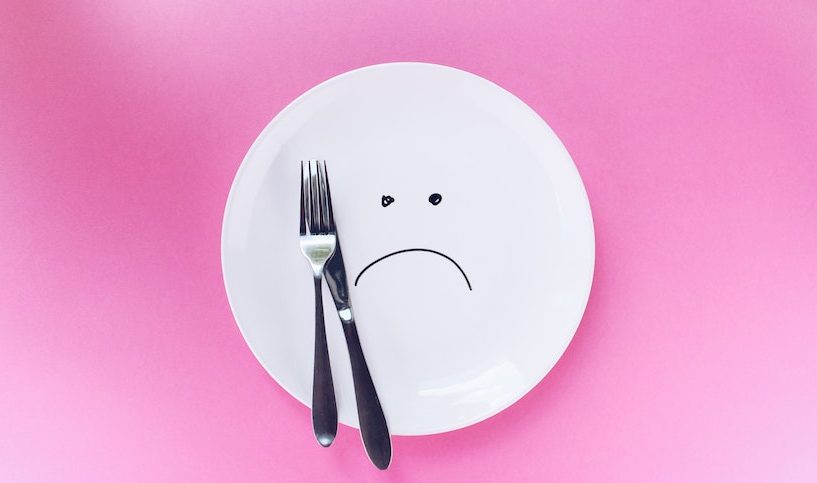Ramadan can be a tricky time for many people, especially when it comes to food. The delicious dishes, decadent delights and rich meals are all about celebration. We are culturally “extra” and the older I get, the more I have come to appreciate it. The loaded tables, the loud relatives and the thousand hugs are our love language. Which is why it is frustrating and disheartening to watch people use Ramadan as an excuse to hate their bodies and to try to deprive it of its needs in the name of reaching the ideal body.
Having health goals is great and even using the shifts that happen in Ramadan as a way to reset your system or to help you change your mindset is a fantastic idea. We’re already fasting intermittently anyway. Using the change in your routine to hit the gym more regularly or joining family on post-futour walks are great to get or stay fit. But it can become problematic when instead of nourishing, we resort to bullying and body shaming.
I came across a couple of troubling examples on social media. One TikToker was suggesting her followers buy the special appetite suppressing tea, so they would not be tempted by all the desserts. On Instagram, a sponsored post came up for me on the second day of Ramadan which was urging the audience to step away from the Luqaimat if they wanted a better body. I am rephrasing here, and the post itself is not what shocked me, it was the self-hatred in the comments that got to me, which included people tagging their friends and throwing in cow and pig emojis. Sadly, most of these commenters were young women.
Eating disorders (ED) and even disordered thinking towards food as well as our bodies is a serious issue. They vary from extreme restricting of food intake or binging and purging cycles. Regular fasting can already trigger people who are in recovery or suffering, so being hit with these messages on social media can be demoralizing or even worse, confirm and validate problematic behavior. The long term effects of EDs can be devastating for a patient’s health and mental well-being. Social distancing does alleviate some stress since the big family Iftars and Suhours are off the table (pun not intended) but the barrage of posts on social media doesn’t stop. Even if you don’t have an ED you can still have disordered thinking. Young women and girls are especially vulnerable, if every woman they meet will push away food and say I am so fat, or if I eat another bite I will end up looking like a whale.
Sadly, we joke about being fat or eating until we burst all the time. We make fun of our love-handles and congratulate people on weight loss even if it was the result of an illness. Our attitudes towards diets and dieting are toxic and social media is just fanning the flames. Whether we’re getting bombarded by food and diet related memes because it is Ramadan or it is time for your beach body (this year it is a double whammy), the content is draining. To constantly have to think about how our body looks like and how society is judging our moral worth based on our dress size is demeaning and demoralizing. Even innocuous comments can become loaded and weaponized. There is nothing wrong with attempting to achieve certain health goals during the Holy months, as the benefits of fasting are numerous including heightened brain power, greater longevity, improved heart health and better controlled blood sugar levels, but the key is balance.
When influencers start trying to market laxatives and diet teas that suppress your appetite because some people just can’t stop eating, we have entered dangerous territory. Not only are they propagating the toxic culture they are also peddling products that are not backed by scientific evidence. And the message keeps getting cemented, your body needs to be fixed, regardless of how you do it.
We’re constantly surrounded by people who are dieting or “watching their weight” as if it might creep out from behind a tree and pounce on them. It is true that we’re starting to see more positive examples of women who share fitness journeys that are based only on becoming stronger or feeling more energetic, the majority of the messaging is still overwhelmingly toxic; Clothes need to “flatter” your body shape. There’s a better way to pose in photos, so you look thinner. And you can’t eat kunafa, qatayef or baklava because they will make you fat.
If the media is partly to blame, then so are we. We control our own social media consumption and we need to start noticing when the people or brands we follow are trying to profit from our insecurities. We also need to notice when we point out our tummy rolls or double chins and complain to another woman or worse, a young girl, because we are becoming a cog in the propaganda machine that is telling us and them that we are not good enough. I am all for supporting other women, but I find it hard to hear them constantly pointing out their physical flaws. Instead, we should be supporting each other to love ourselves and our bodies instead.
Fortunately, we’re starting to see the body positive movement gaining traction in the region. I’m noticing more women celebrating their bodies regardless of their size and reminding us that all bodies are beautiful. Personally, I would just move directly to body-neutrality: a body just is. It is the physical representation of you, and should not be a battleground where a war of social norms, ideals or values should be fought. It is something to be protected, cherished, respected and maintained. Not only that, but it needs to be fueled and nourished. It needs to be strengthened and given time to rest and heal.
This Ramadan, I hope we go on a social media fast, unfollow people who spread toxic diet culture, or any toxic ideas. And to appreciate our bodies, and to use them to do good deeds, to hug our loved ones and to truly enjoy life.
Photos by Diana Polekhina and Thought Catalog on Unsplash.






